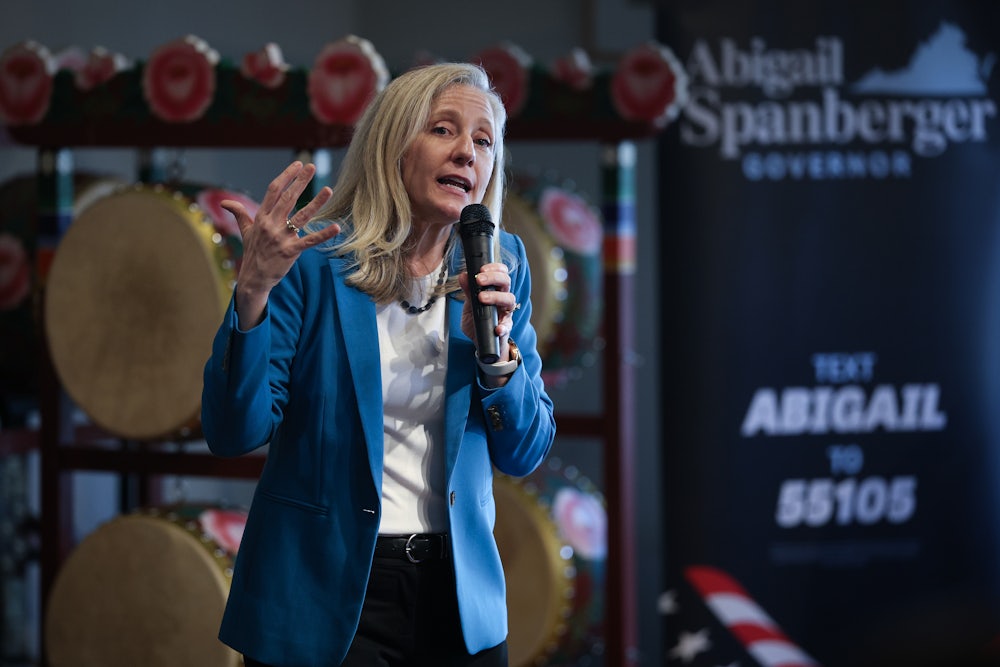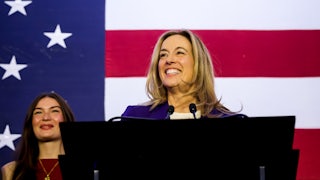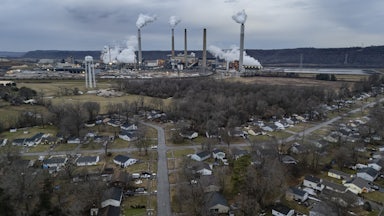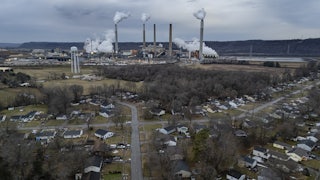Over the last several months, reports from billionaire-funded centrist advocacy groups, like WelcomePAC and Searchlight Institute, have insisted that Democrats stop talking about climate change—either in their campaigns or while governing. Climate change has little resonance for voters, they claim, comparing the polling on reliably unpopular policies like “create a carbon tax” with reliably popular policies like “lower the gas tax.”
Unfortunately, this message appears to be reaching its intended audience. In just the last week, New York Governor Kathy Hochul approved a new gas pipeline that President Donald Trump has been championing, while Pennsylvania Governor Josh Shapiro dropped his state’s effort to join the Regional Greenhouse Gas Initiative.
The idea that Democrats should abandon the most existential fight human civilization has ever faced is a particularly bizarre lesson to draw following Democrats’ huge wins this November, when many of the party’s victorious candidates explicitly championed clean energy investments and accountability for fossil fuel company profiteering as solutions to rising energy costs.
A memo published Wednesday by Data for Progress and Fossil Free Media therefore makes the exact opposite argument: Democrats shouldn’t run from climate. Instead, they should translate both the impact of climate change and the benefits of climate action for voters. The new memo, which I participated in drafting, points to evidence showing that, contrary to WelcomePAC’s and Searchlight’s portrayal of climate change as a niche social issue, climate-related costs already are top-of-mind, pocketbook concerns for most Americans.
A majority of voters say they believe climate change will have a direct financial impact on their families. Millions of voters are already feeling the pain of skyrocketing home insurance rates, which are driven by the increased risk of severe weather from climate change. Millions more are confronted each year with the staggering costs of disaster recovery from extreme weather events exacerbated by the climate crisis. And a strong majority of Americans are struggling with rising electricity prices, a problem that just 5 percent of voters blame on renewables versus corporate profits (38 percent), data centers (14 percent), and grid pressures from extreme weather (11 percent). On the flip side, expanding clean energy is the fastest way to produce cheap electricity needed to lower utility rates—and Democrats hold a massive trust advantage over Republicans when it comes to clean power.
This trust gap is a key part of the argument that Data for Progress and Fossil Free Media are making. Their memo points to findings that, right now, neither party has a significant trust advantage on “electric utility bills” (D+1) or “the cost of living” (R+1). But Democrats do have major trust advantages on “climate change” (D+14) and “renewable energy development” (D+6). By articulating how their climate and clean energy agenda can address these bread-and-butter concerns, Democrats can leverage their advantage on climate to win voters’ trust on what will likely be the most significant issues in 2026 and 2028.
The formula for doing this is pretty simple: First, explain why bills are rising and who’s to blame (utilities, fossil fuel volatility, data-center demand, climate disasters); second, commit to implementing visible cost relief (rate freezes, clean energy buildout); and third, name who will pay (polluters and profiteers, not regular people). Or, to simplify all this into one clear campaign-ready sentence: “We’ll take on rising electricity bills by building the cheapest power and stopping monopoly price-gouging, all while making polluters, not families, pay their fair share.”
The best part about this populist approach to climate is how obviously it contrasts with Trump and the Republicans. Imagine being able to tout this contrast in every stump speech in 2026: Democrats are trying to expand cheap, clean energy to secure lower rates, while Trump is trying to keep outdated coal plants running, forcing ratepayers to shoulder billions in extra costs. Democrats are getting tough on price-gouging utilities, while Republicans are giving these corporations free rein. Democrats are fighting to make polluters pay for increasingly costly climate disasters; Republicans want all of us to pay for the damage Big Oil caused.
Abandoning the climate fight would be a profoundly morally reprehensible course of action. (It’s a particularly unforgivable message when it comes from billionaires like Reid Hoffman, who are funding the groups telling Democrats to forget about climate while building their own luxury bunkers for “apocalypse insurance.”) It’s also a huge political mistake. To give up on climate, an issue that Democrats are trusted on, is to throw away a tool that Democrats can use to offer credible solutions to the cost-of-living crises affecting working people throughout the country.
“Heading into 2026,” the memo reads, “Democrats have a chance to define themselves as the party that will build the cheapest energy, crack down on profiteering, and make polluters, not families, pay for the climate damage they’ve caused.” That is, substantively, a great climate agenda. It’s also a winning electoral message, and one Democrats should be running on, not from.








